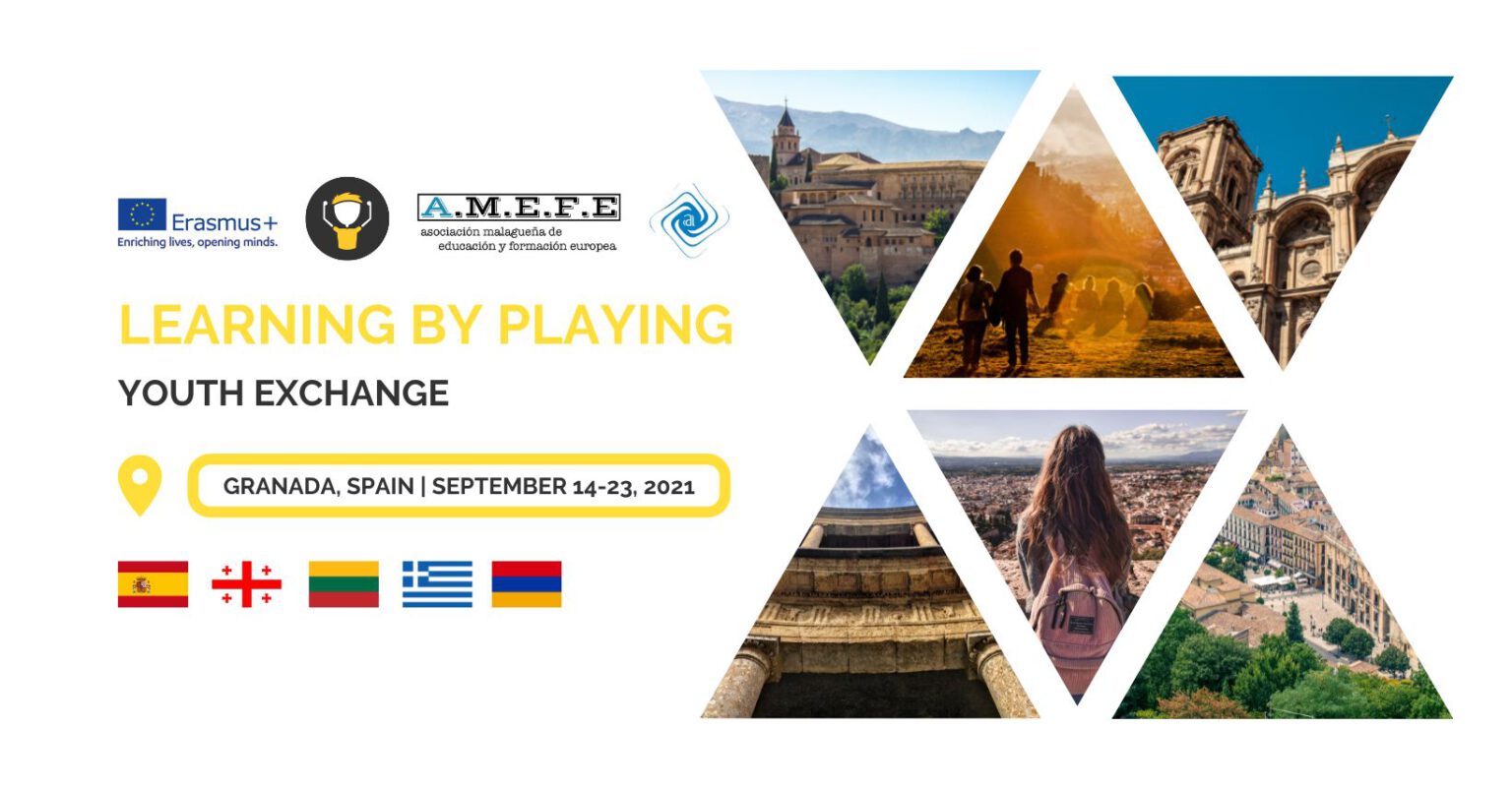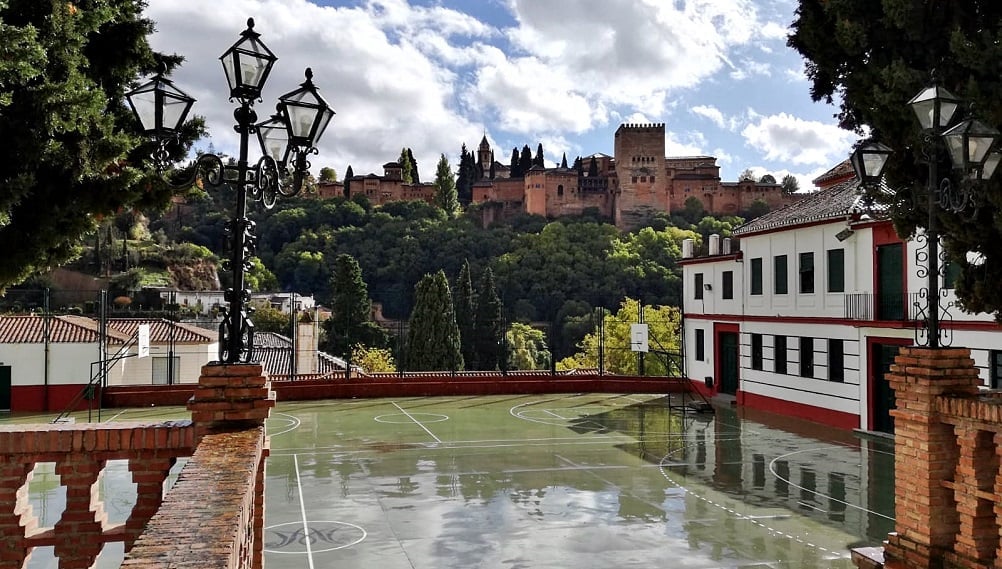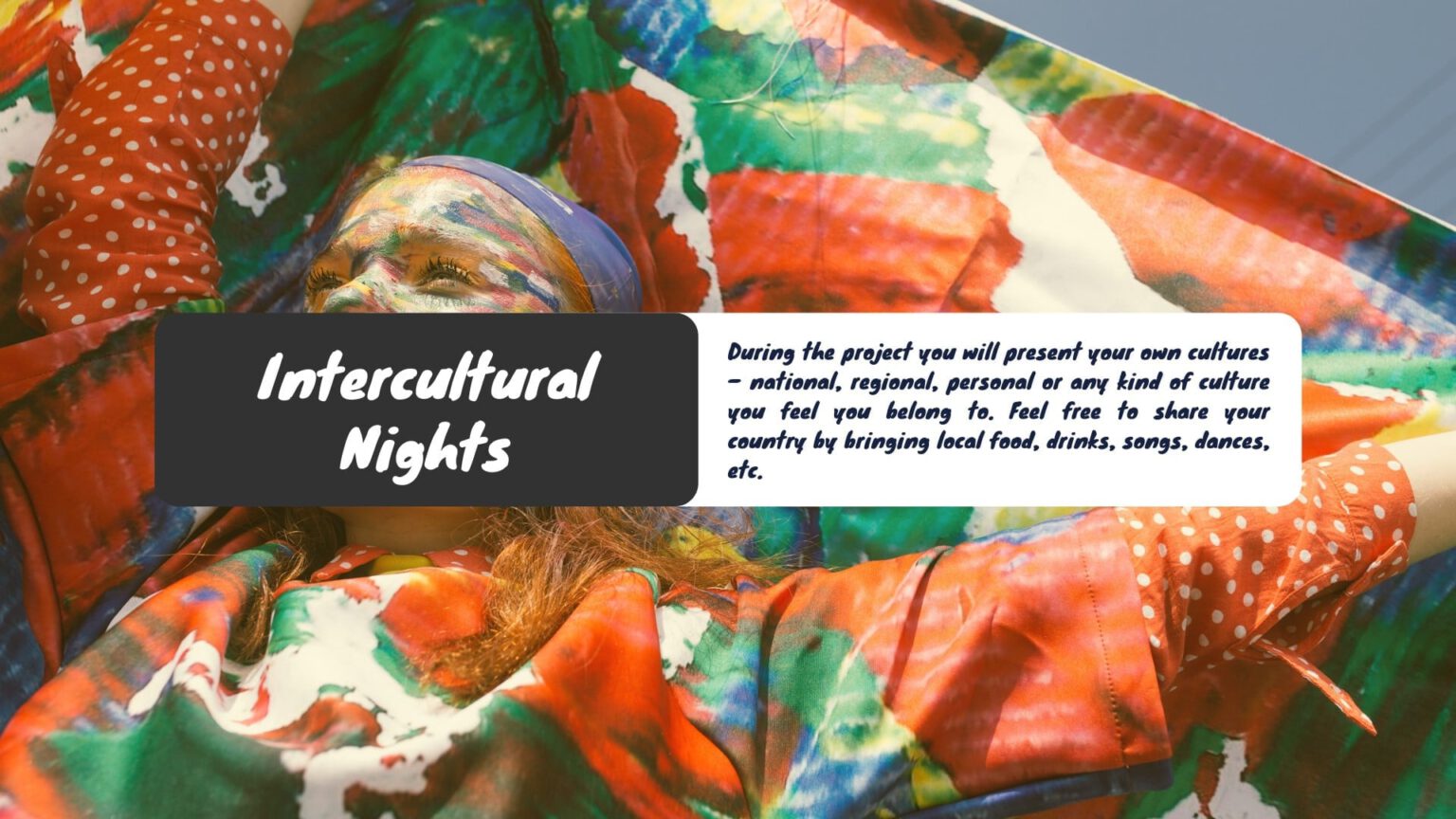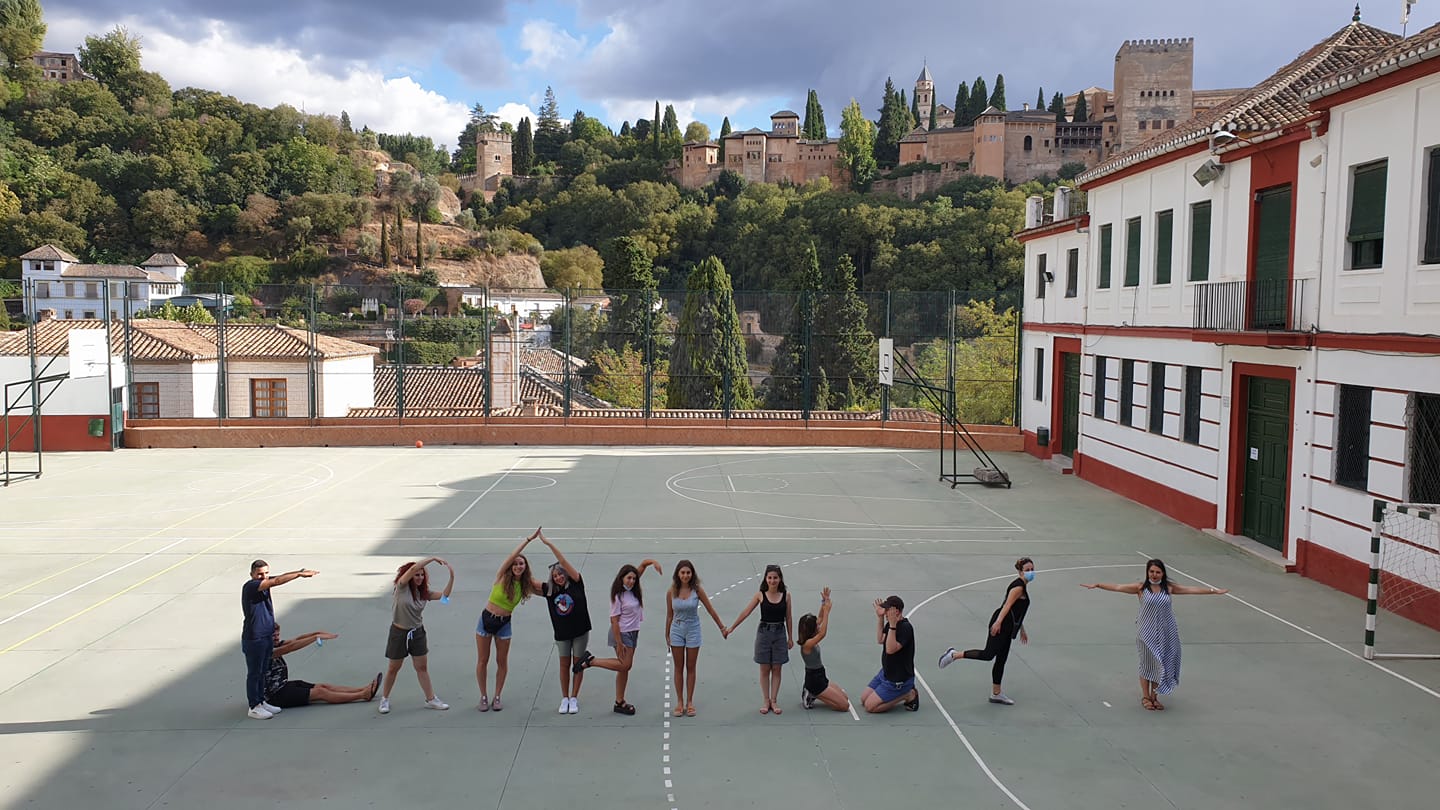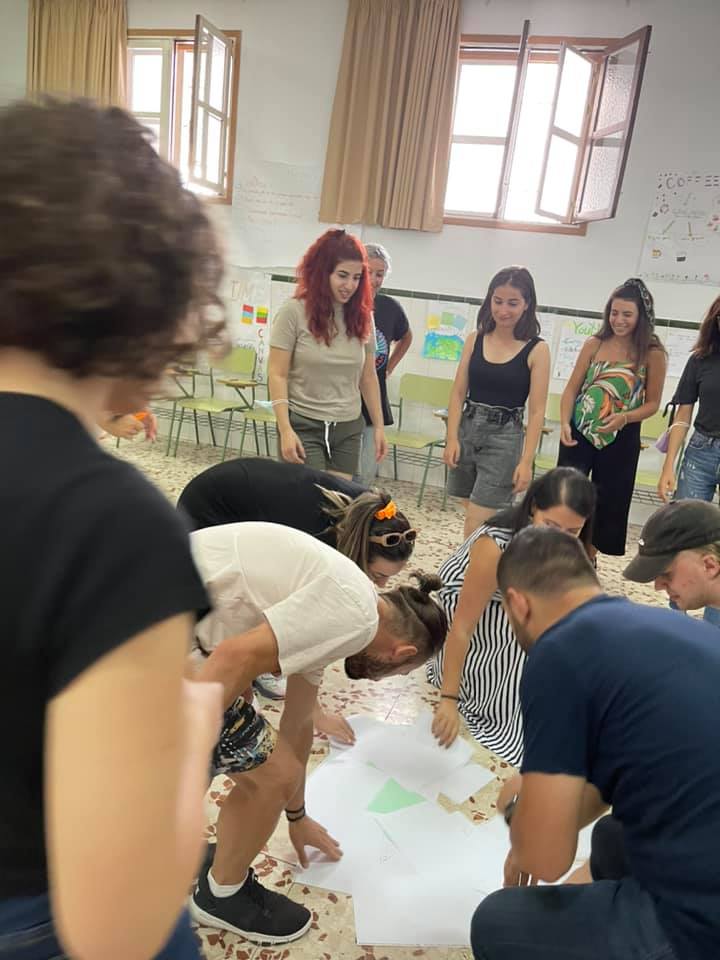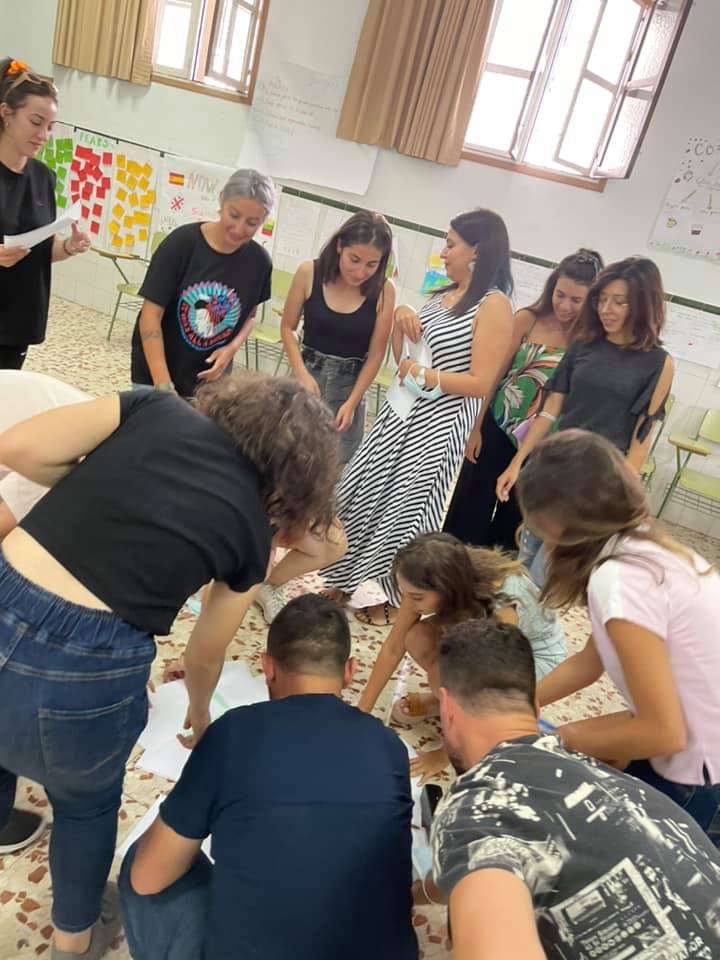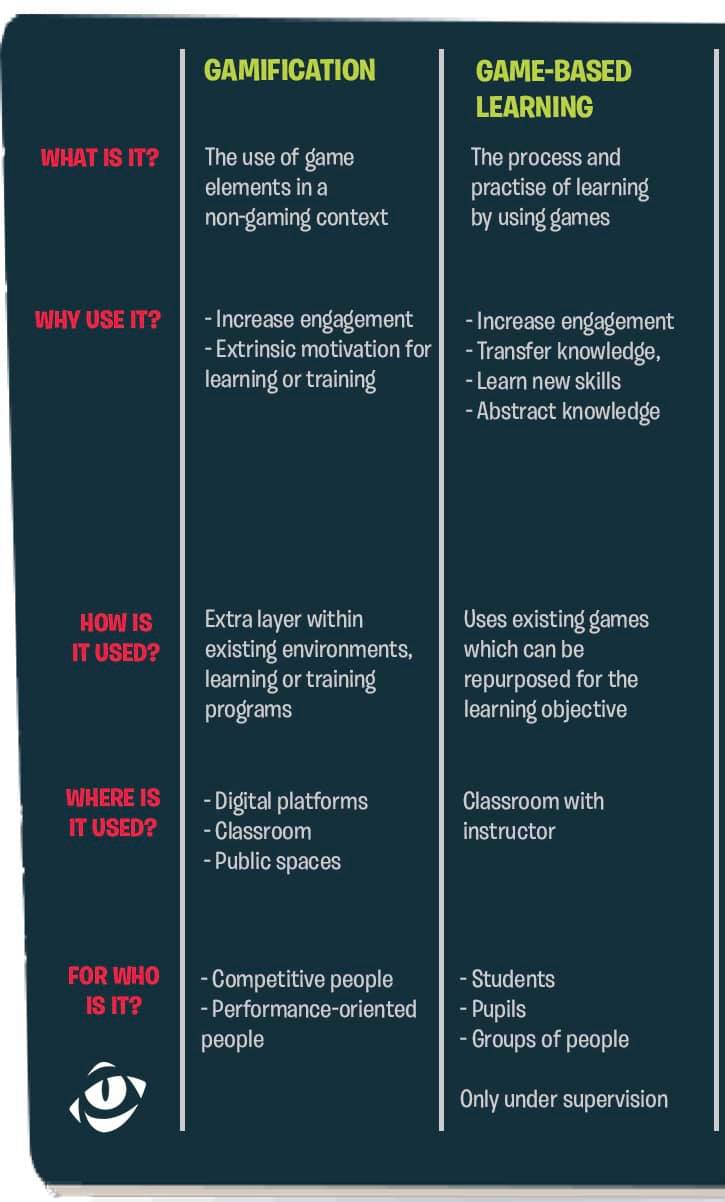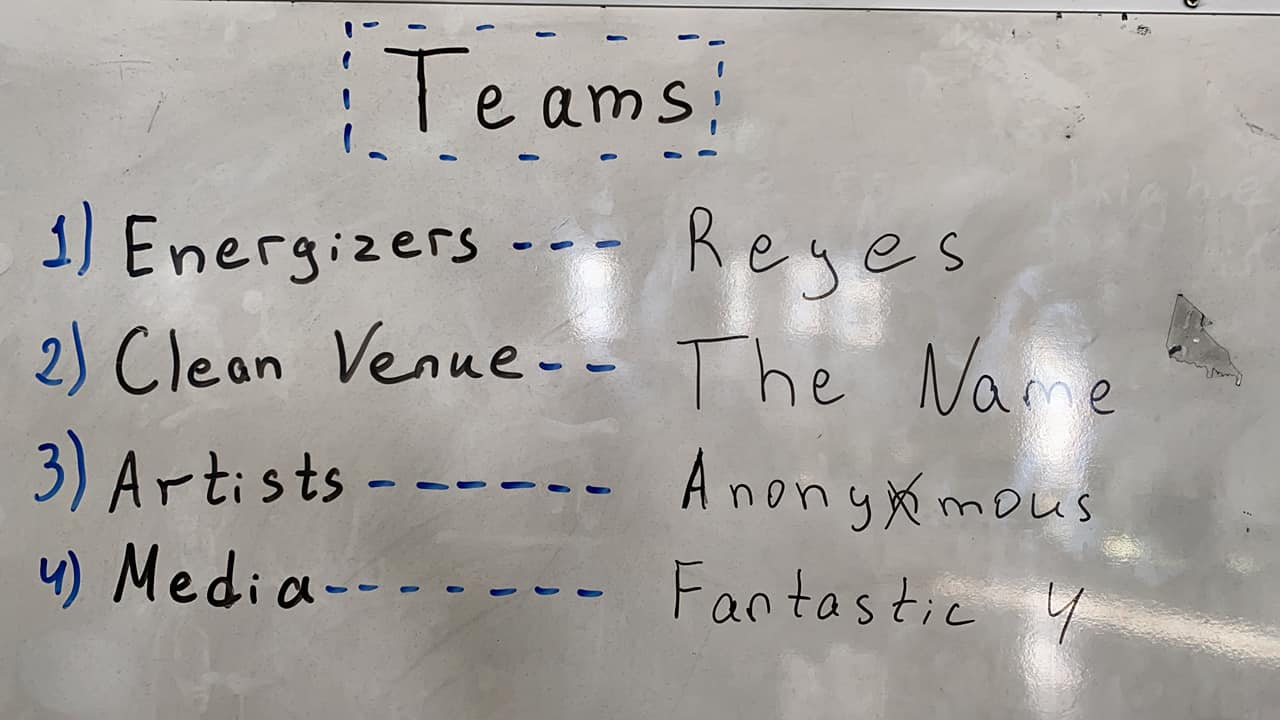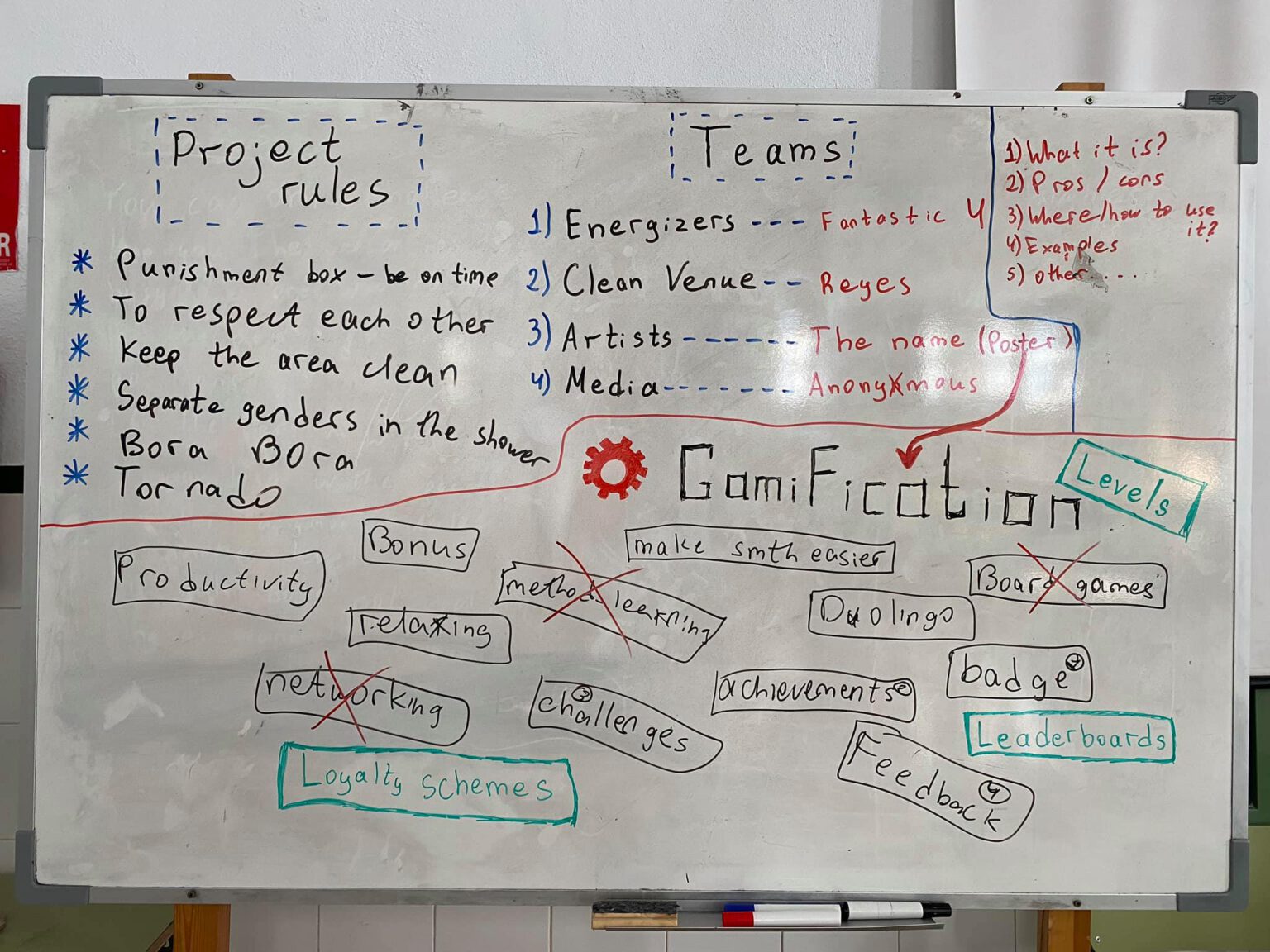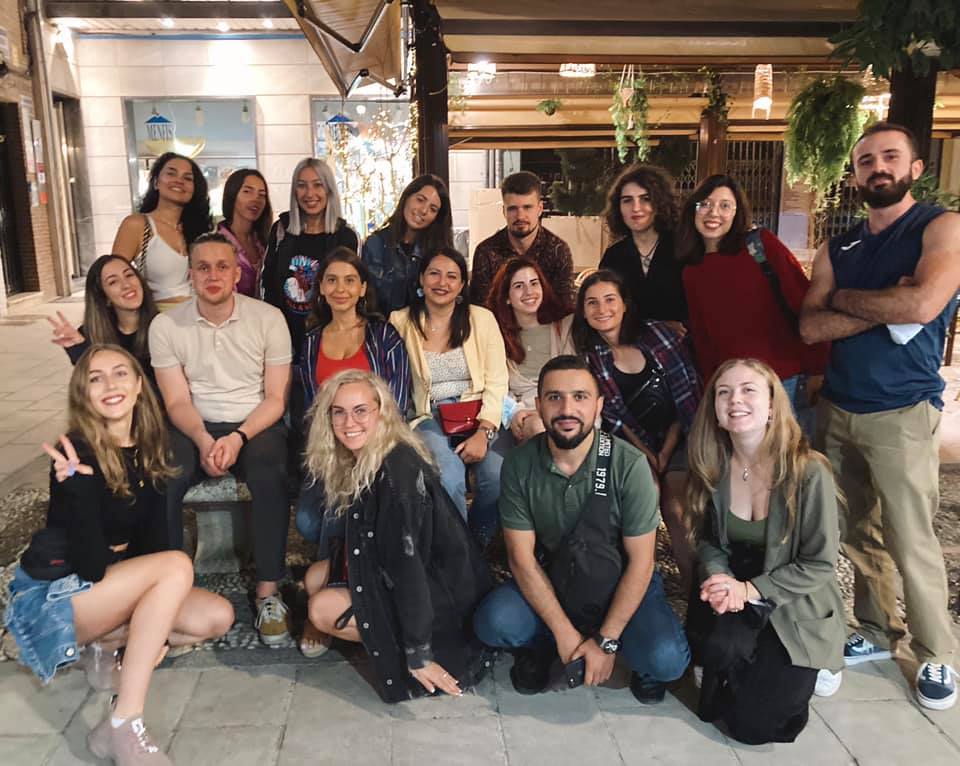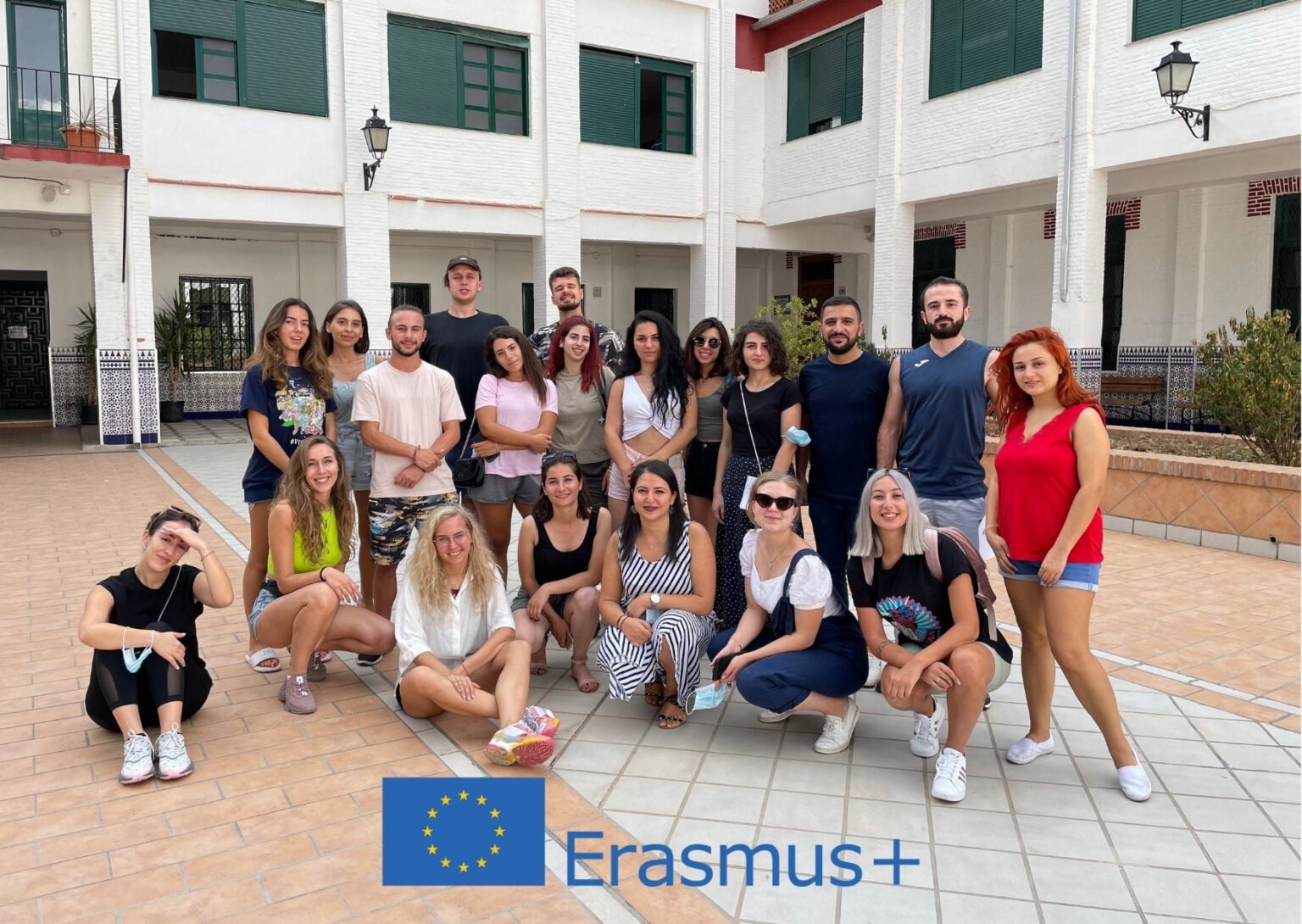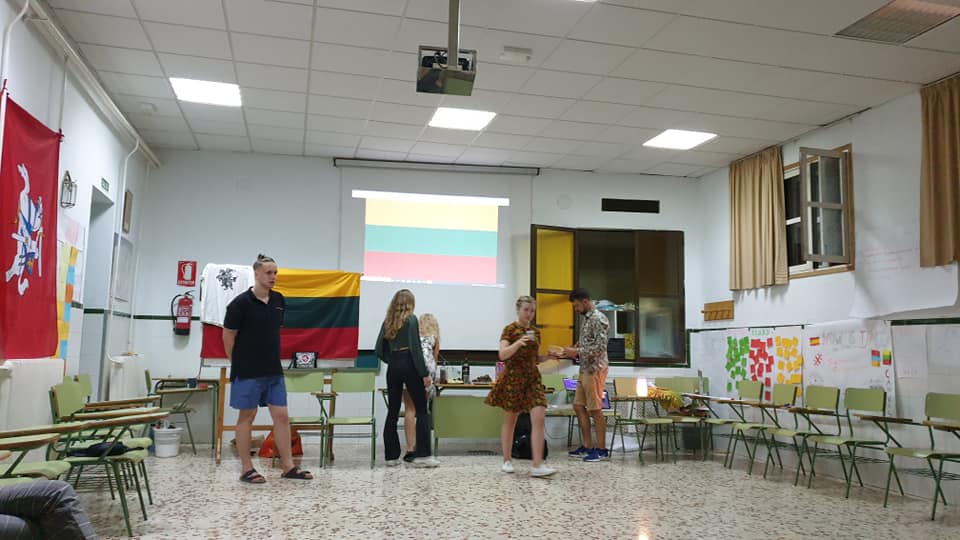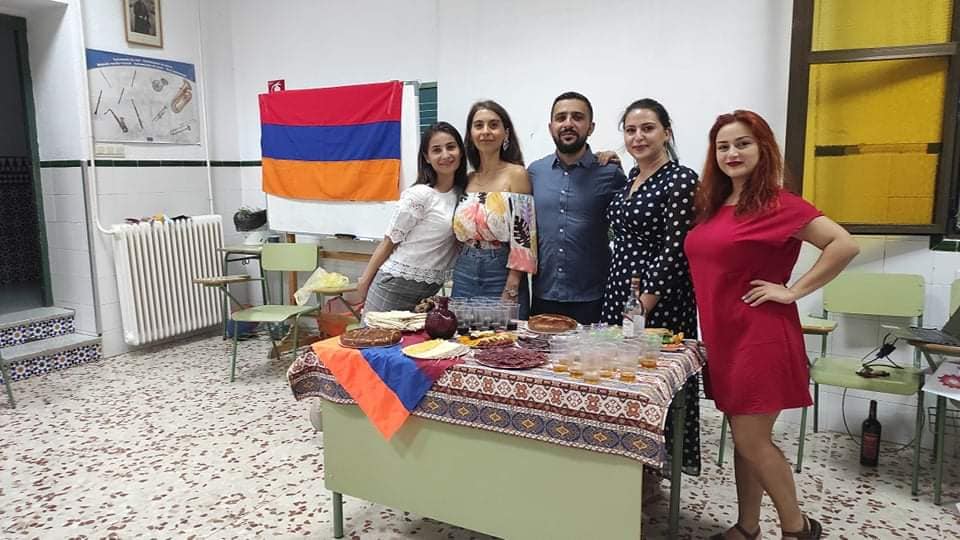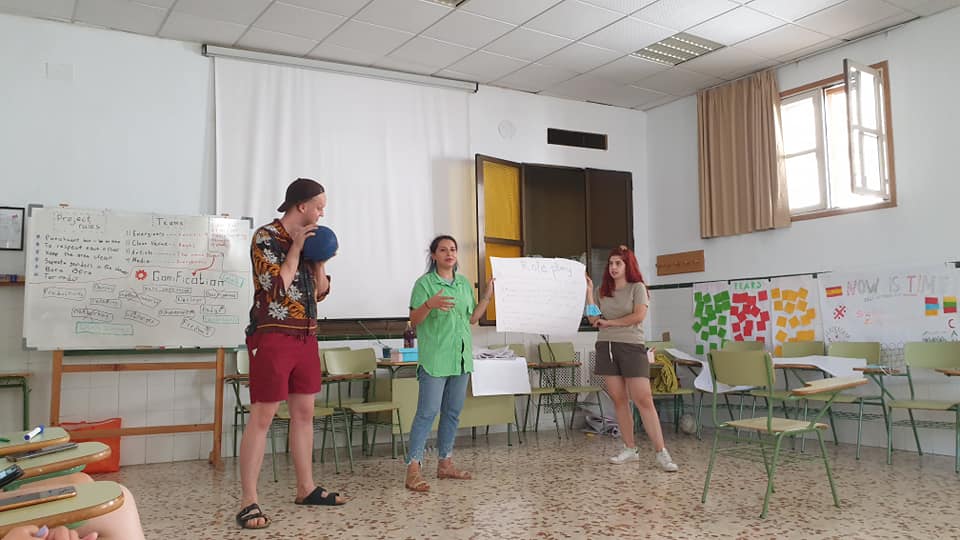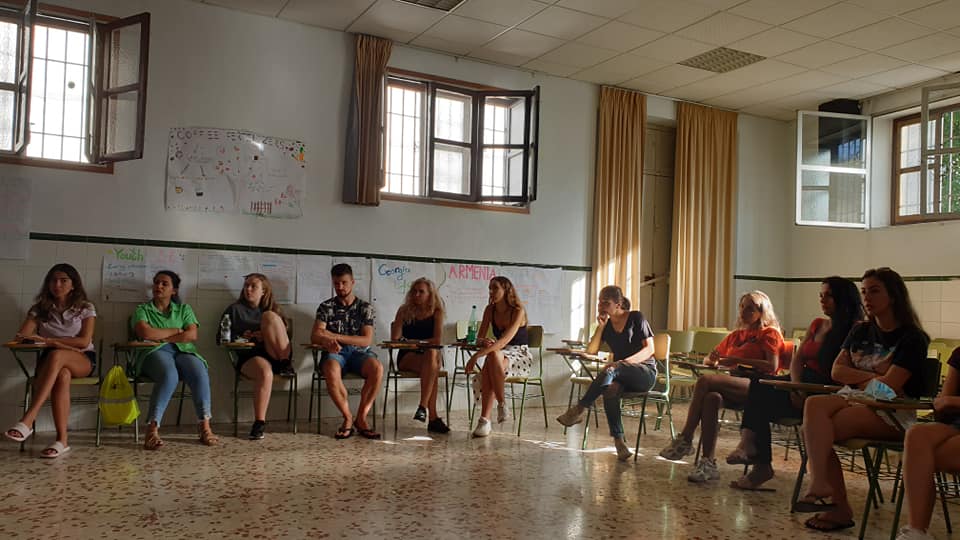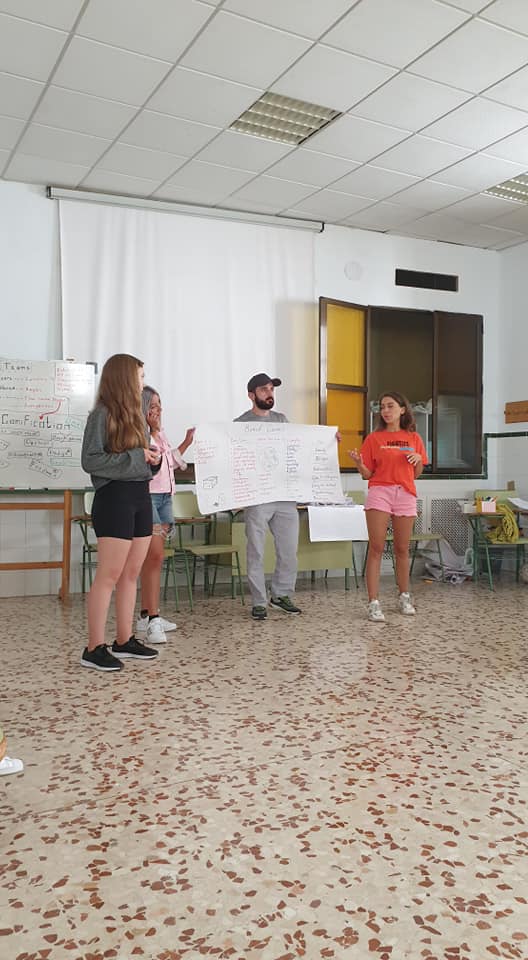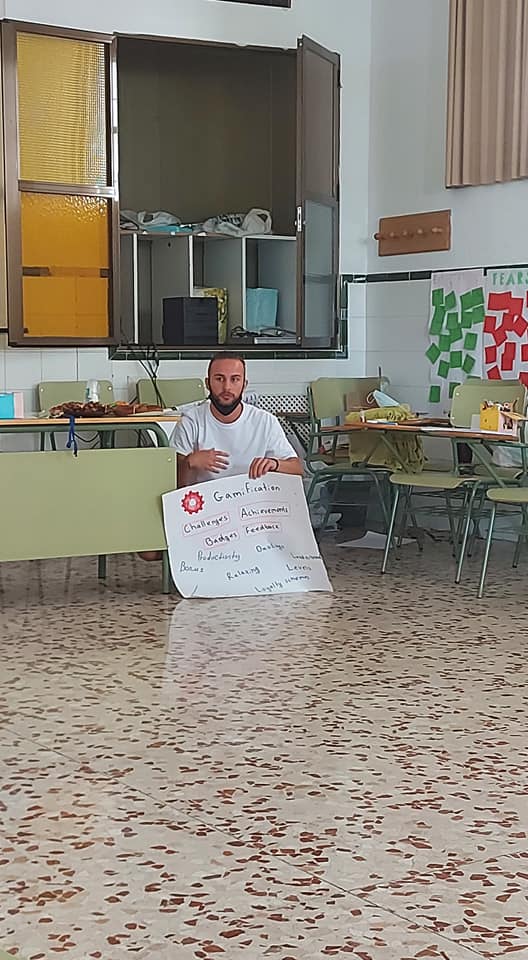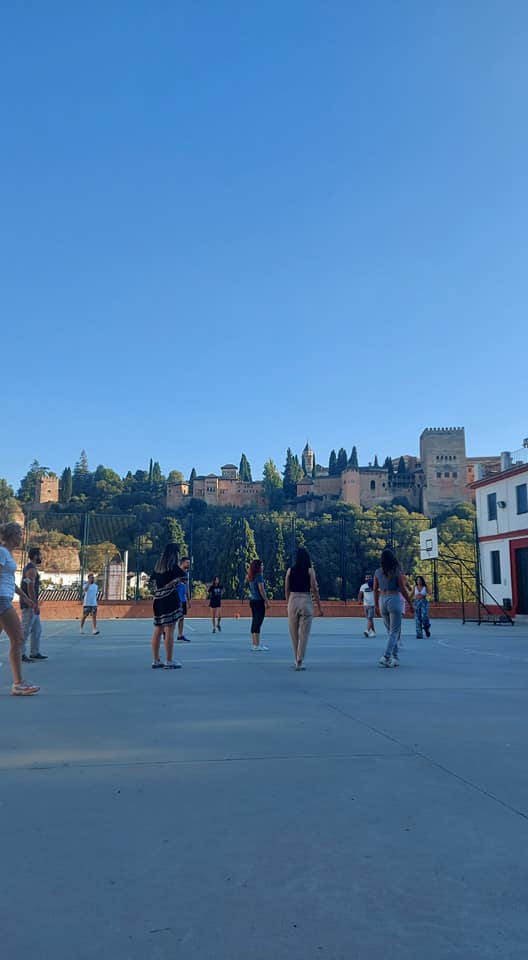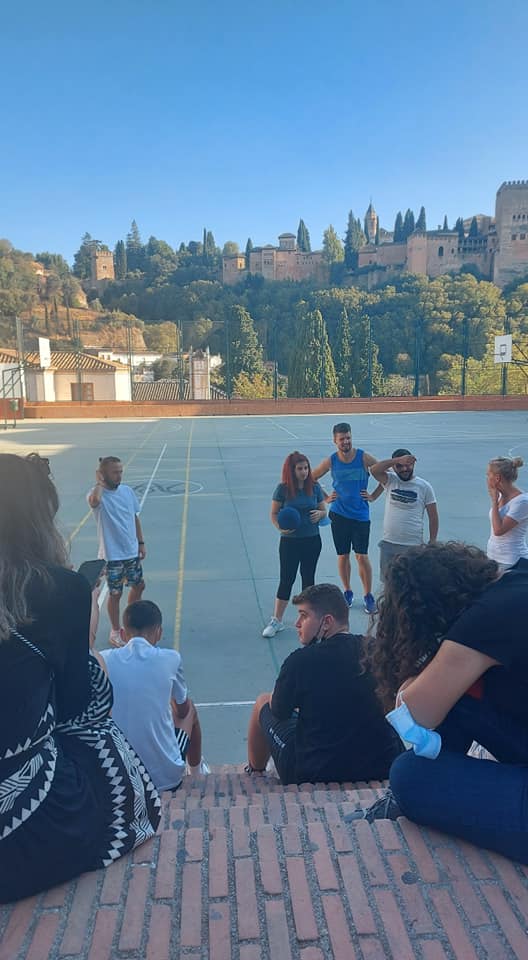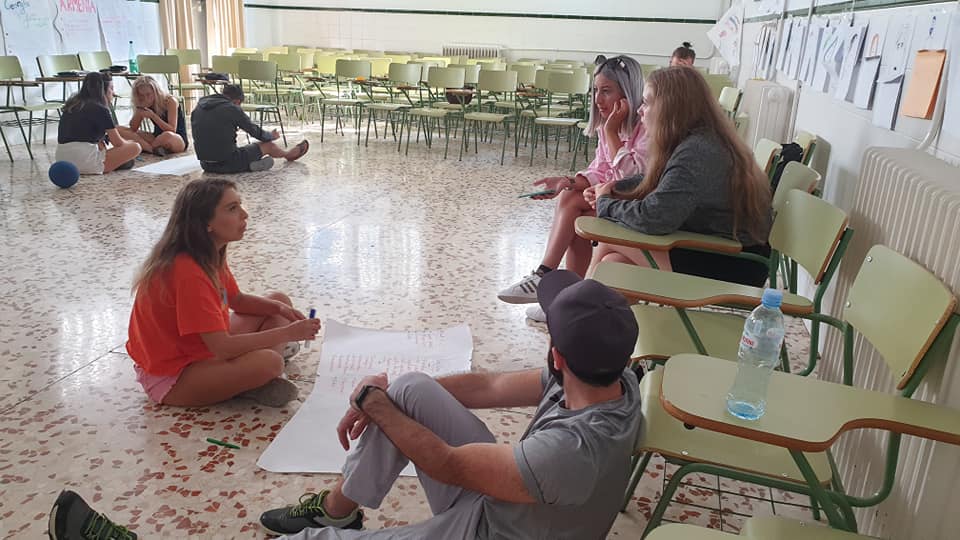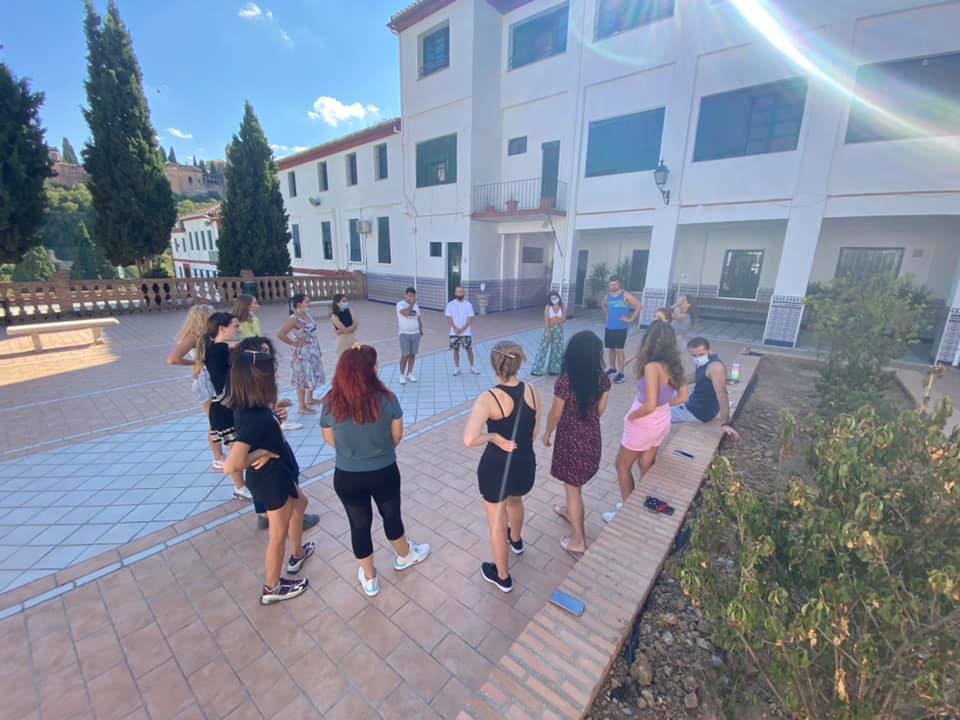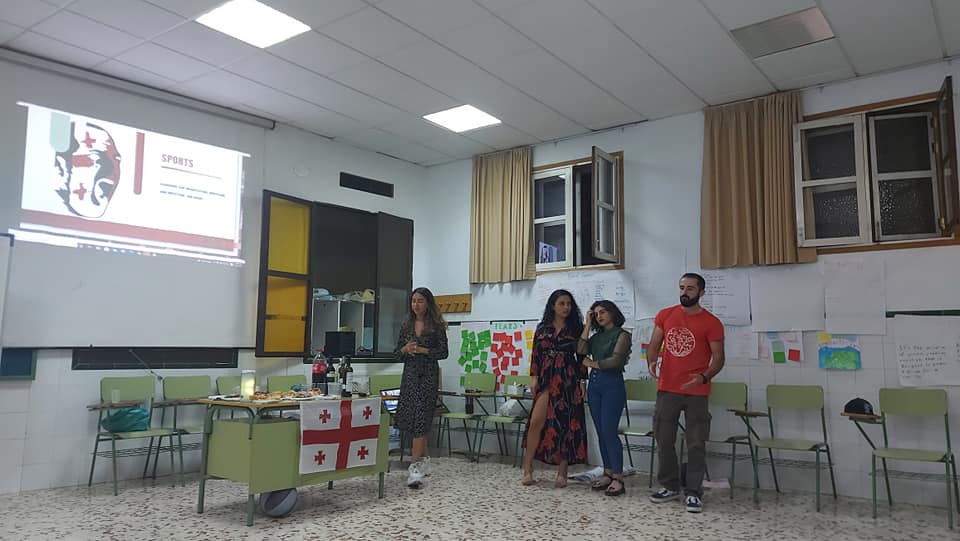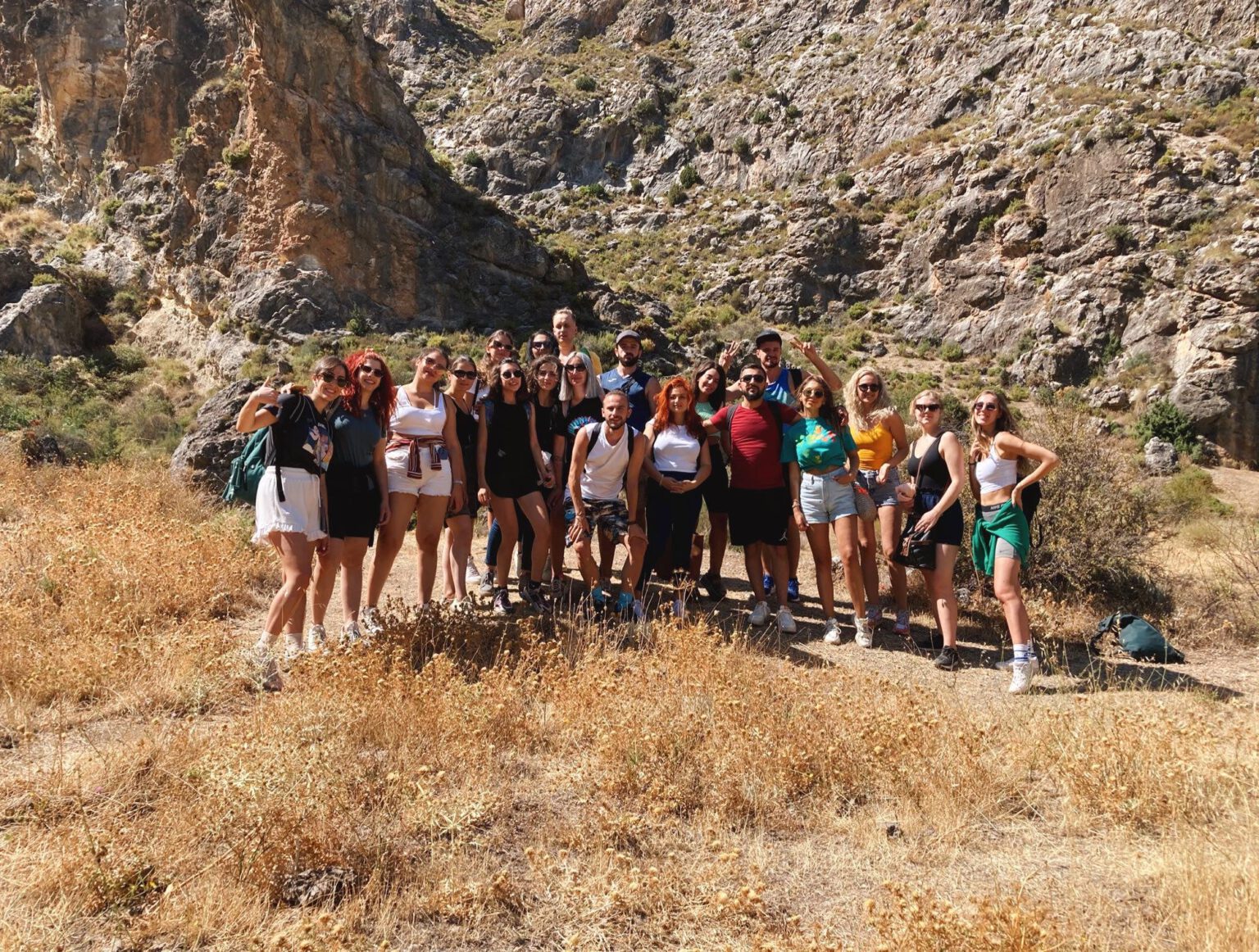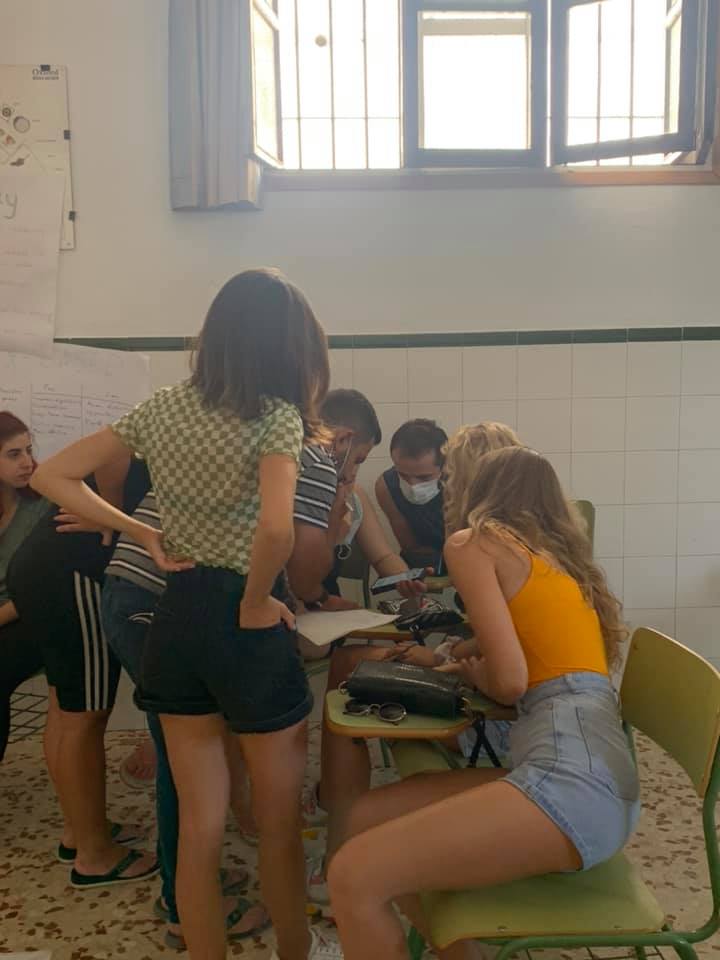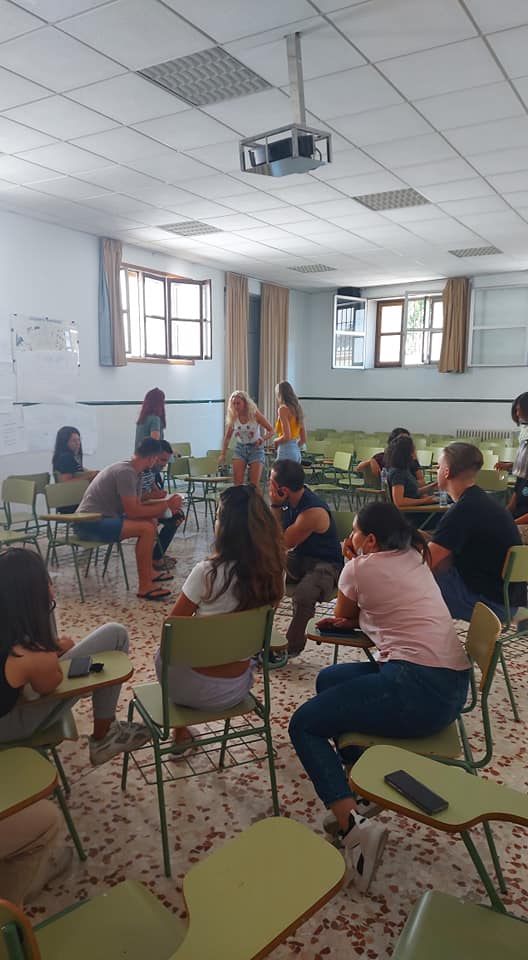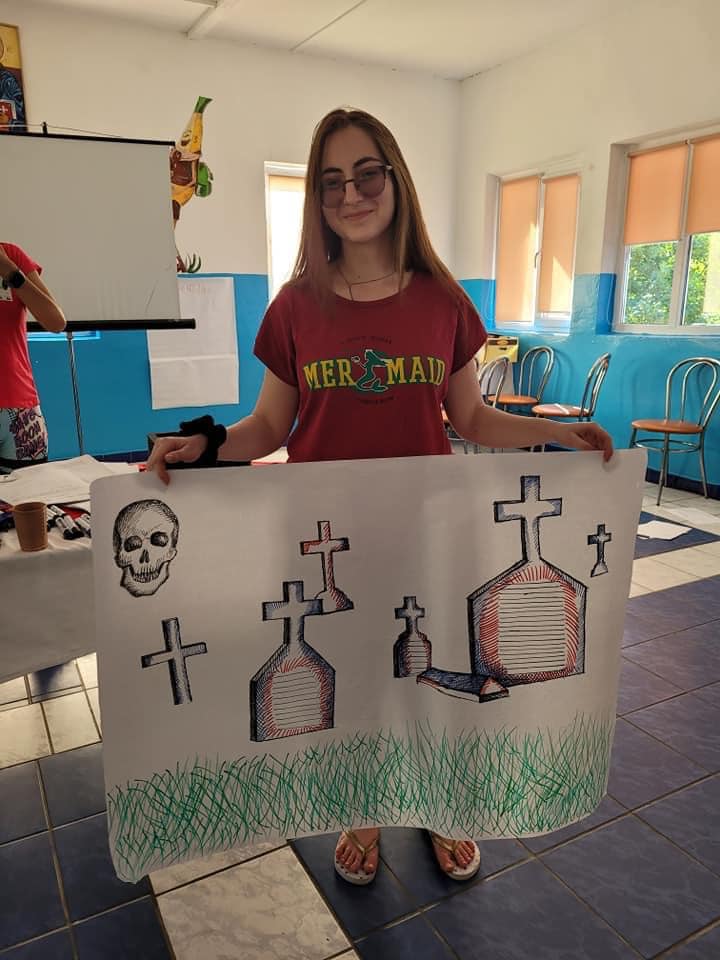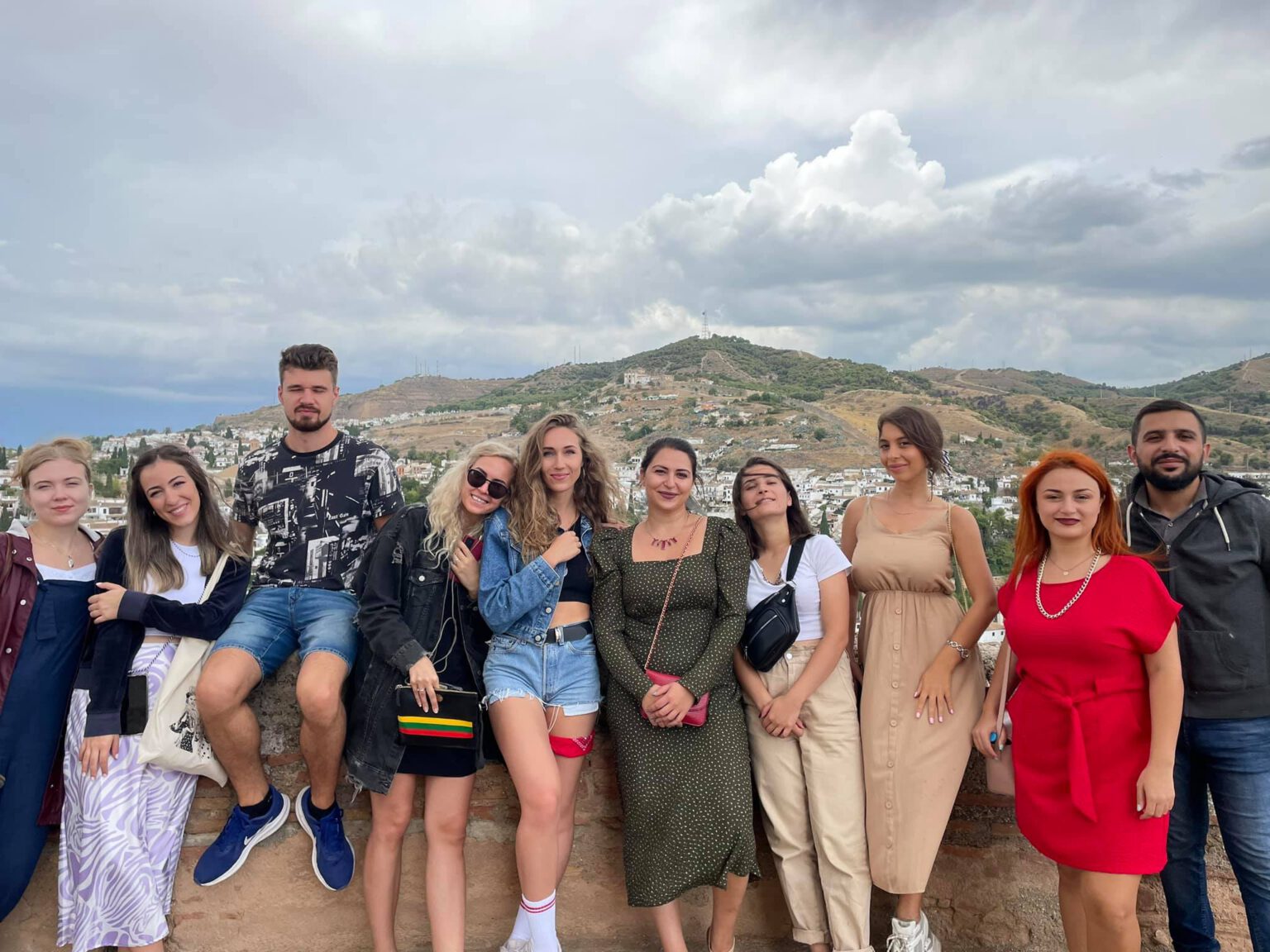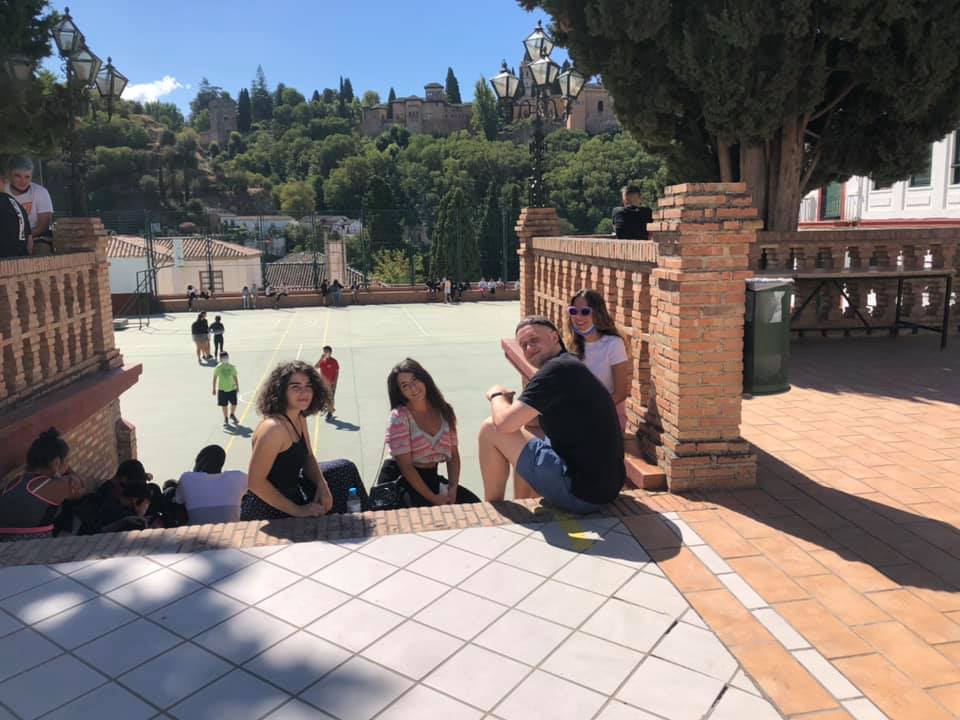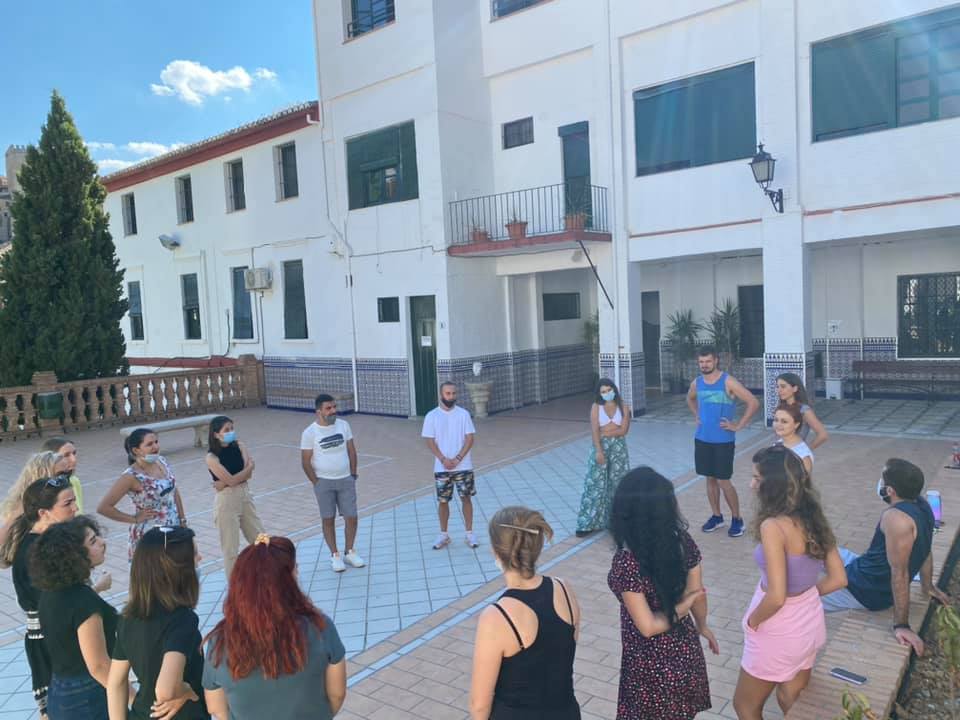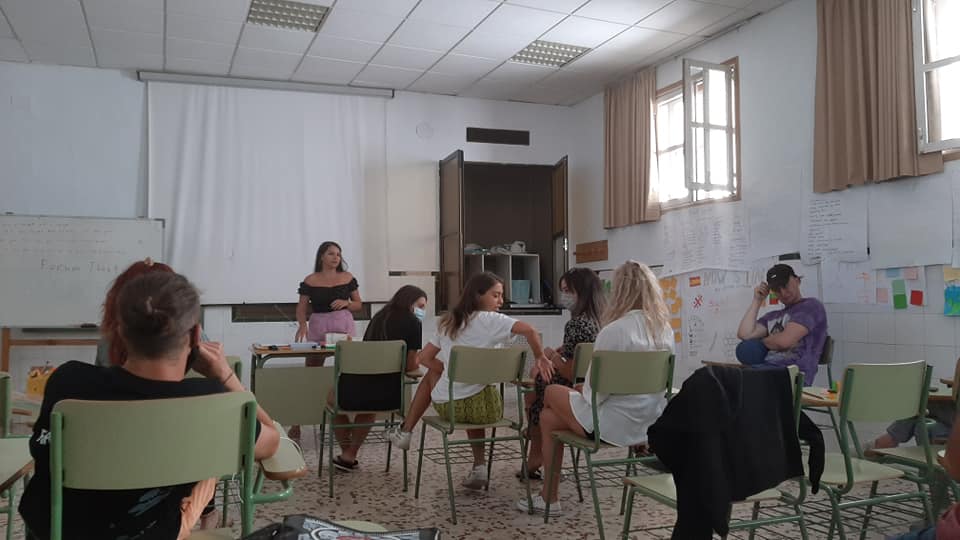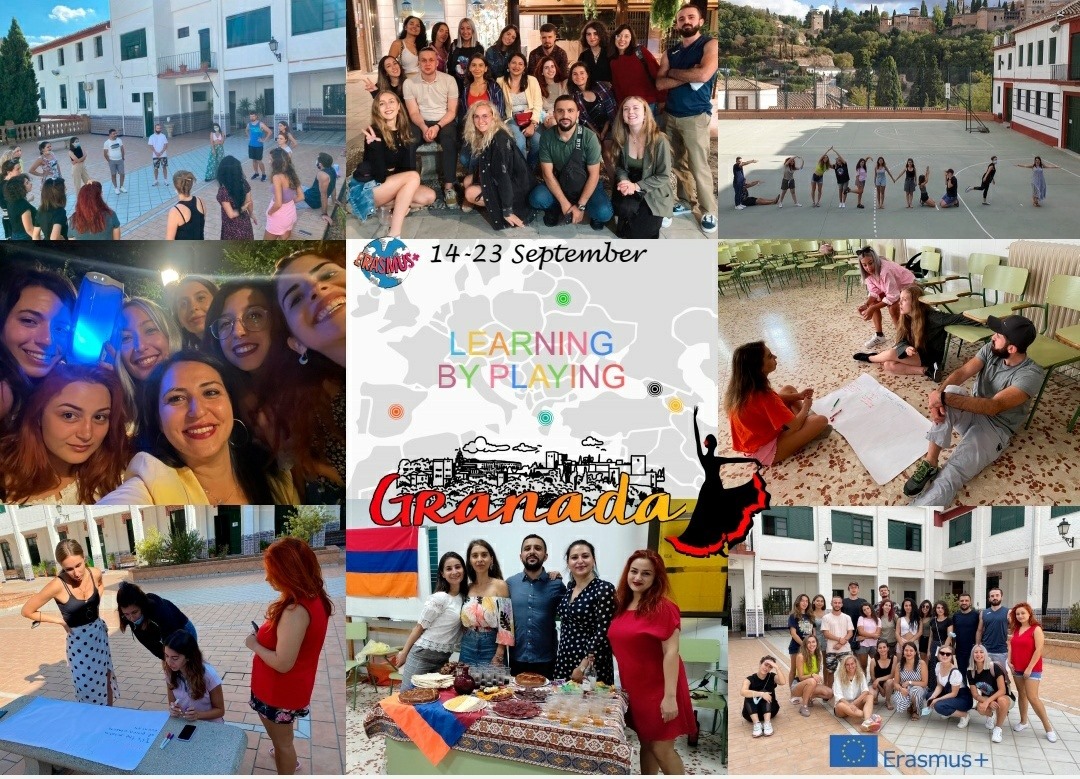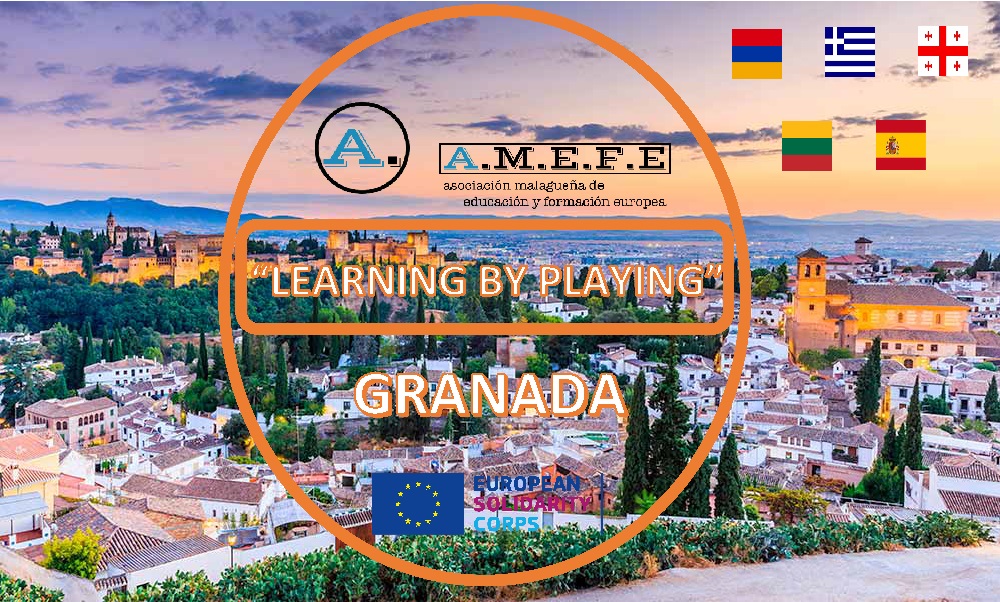«Learning by Playing»
On one occasion, when we noticed a notable lack of audience motivation and engagement when offering «traditional» activities to our target groups in Spain, we offered gamified activities alongside the usual presentations, sessions, and workshops with the help of our local volunteers. From there, we conducted research to identify more dynamic forms of engagement and information as trainers/facilitators. We developed methods based on existing research to ensure focus through games and activities. These methods were tested, and based on the feedback received, we refined the gamification elements and game-based learning methods that proved most effective. While offering gamified training and interactive activities, we were able to measure our audience’s interest both immediately and afterward to determine the effectiveness and level of engagement. Our success led us to continue to consider gamification elements and game-based learning methods as a viable way to transform a traditional environment into an interactive and rewarding project that is more inclusive and, therefore, allows the greatest number of participants to develop their skills.
In line with the aforementioned issues, our first objective is to create an environment where young people can explore the concepts of gamification and game-based learning. To achieve this, we will synergize the expertise of six organizations with experience in the field. The group leaders from Spain, Georgia, Lithuania, Armenia, and Greece will ensure that the activities promote gamification and game-based learning. In this way, the other participants from these countries can contribute their respective knowledge and experiences and, in turn, learn from each other. We believe that in this way we can address a key objective of Erasmus+: improving the level of key competences and skills, with a particular focus on their relevance to the labor market and their contribution to a cohesive society. Learning by Playing will facilitate exploration of the topic, build competences, and lead to their dissemination in their respective societies.
There is a significant difference between our two main concepts. Gamification is the application of game mechanics in a non-game context to promote desired behavior and drive learning outcomes. It includes reflection points, badges, leaderboards, feedback schemes, competition, and other incentives. Simple examples include Duolingo, IBS’s Kudos Badge, and Quest to Learn. In the case of game-based learning (GBL), we take a game and use it to learn. GBL aims to teach a discrete skill or specific learning outcome, rather than being a complete pedagogical system.
In this case, we have simulations, role-playing games, and theater forums. Both concepts foster the creation of a non-formal environment during sessions and increase participant engagement. They focus on clearly defined objectives and address specific categories of people, so we can consider them drivers of non-formal education.
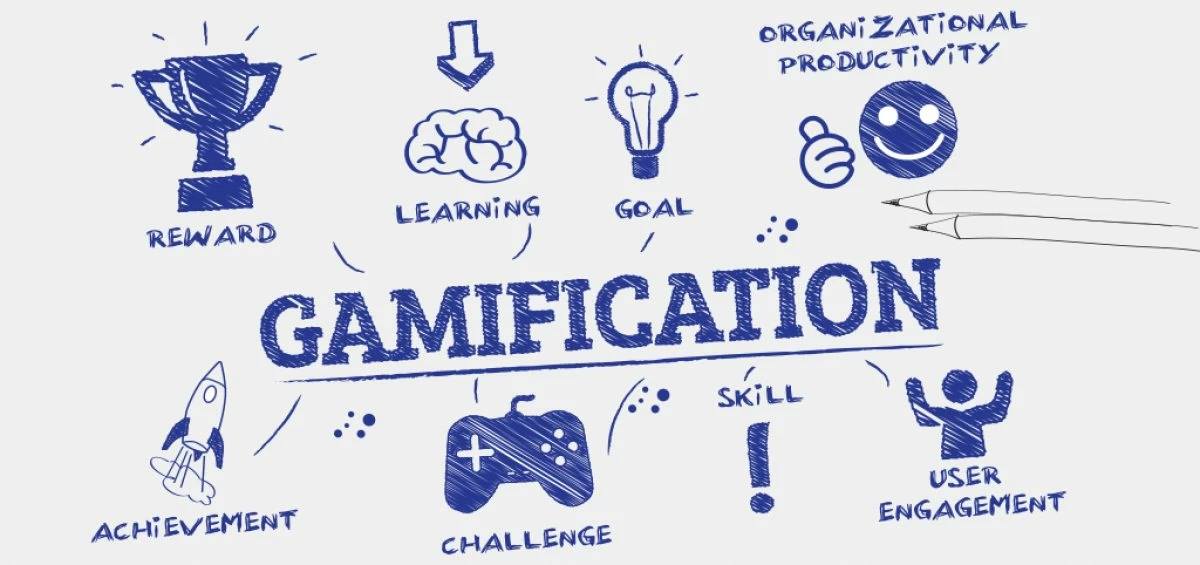
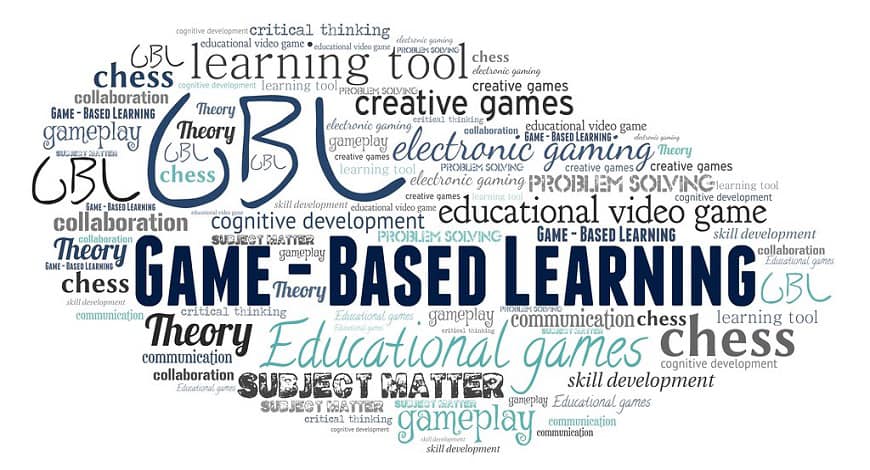
Our vision is to adapt the session to the needs of the participants. As active feedback is one of the core elements of gamification, our reflection groups will be responsible for analyzing participants’ needs and those regarding the facilitation, and we will strive to remain dynamic with the organization of the project. Furthermore, participants will be involved in the design, implementation, and dissemination of the Youth Exchange. This will allow them to learn how facilitation processes are carried out and help them become better influencers and multipliers of good practices.
This Youth Exchange aims to build significant skills as well as partnerships for greater cooperation. As this project is an example of building partnerships while participating in various Erasmus+ activities, participants will be able to foster improved quality of youth work through cooperation among partner organizations. The fact that partners represent different program and partner countries and have diverse cultural and experiential backgrounds will ensure the international dimension of the activities, enhancing capabilities and helping participants grow professionally and personally.
Considering the stated needs and objectives, our main motivation for carrying out this project is to make our idea more tangible: to disseminate knowledge about gamification and game-based learning so that participants become more aware of the concepts and their new skills allow them to share the results for greater satisfaction in the future. We believe these methods are important elements for all youth organizations, volunteers, and young people who want to be active citizens in society. In this sense, we hope to improve the skills of young people and have a valuable impact at the local, national, and international levels.
You can access the project website by clicking on the following image:
